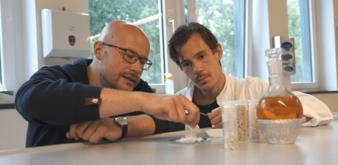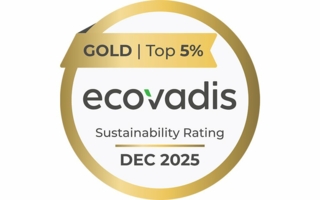08/08/2022 – Textile recycling — auf Deutsch lesen
Innovative process enables upcycling of old clothing
The startup Eeden has developed an innovative process for the sustainable and environmentally friendly recycling of clothing and other textile products.
TechVision Fonds I, together with High-Tech Gründerfonds (HTGF) and a business angel, are the first investors to invest in Eeden. Eeden plans to further expand their R&D-activities and to build up initial production capacities.
Bernhard Kugel, MD of the management company of TechVision Fund I: “With its process, Eeden addresses the major problem of cotton shortage in the clothing industry. Since only a fraction of textiles are currently recycled and made into new clothing, high resource losses occur. At the same time, the demand for cotton is increasing rapidly due to the growing world population and trends such as fast fashion. Eeden’s technology counters these developments by enabling resource-saving and environmentally friendly textile recycling.“
Upcycling instead of downcycling
With Eeden’s process, used textiles made of cotton or other cellulosic fibres can be converted into pulp, which serves as a resource for new fibres such as viscose, lyocell, etc. (upcycling process).
Steffen Gerlach and Reiner Mantsch, the founders of Eeden: “Currently, old clothes that cannot be used as second-hand goods often end up abroad, where they are improperly dumped in the countryside or just burnt, in many cases. Today, recycling basically means that textiles are ‘down-cycled’ into low-quality products such as cleaning rags or insulation material. We want to keep the material in a cycle and thus meet the growing demand for high-quality cellulose products.“
Compared to other upcycling processes, Eeden’s technology is more environmentally friendly and at the same time more cost-efficient. It uses significantly fewer chemicals and reduces by-products such as salt loads in the manufacturing process. Since the process also tolerates a higher proportion of foreign fibres compared to the competition, textiles with higher admixtures of e.g. polyester fibres can also be recycled in the future.
Promising market growth
The market potential for the startup is high: with well over 20 million tonnes per year, the clothing and fashion industry, Eeden’s core market, claims around 60% of the total demand for cotton and cellulose fibres. Björn Lang, Principal of TVF Fund Management: “Eeden is operating in a dynamic market that is facing major upheavals. The demand for recycled fibres is already significantly higher than the corresponding supply. Constantly growing textile production, new legislation and trends towards regional sourcing and sustainability ensure that demand for Eeden’s products will continue to rise in the future.“




